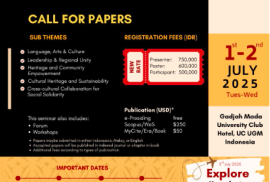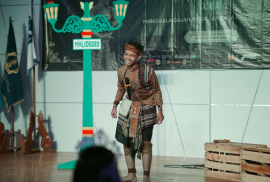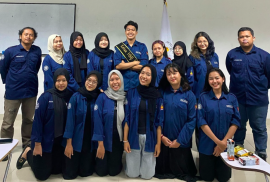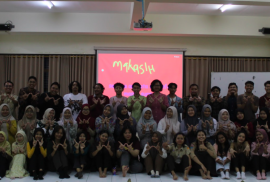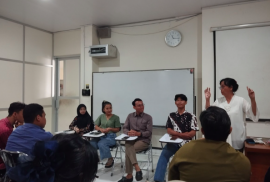Yogyakarta, 15/3/2025 – The 4th International Seminar on Malay-Javanese Studies (SEMEJA) 2025 is jointly organized by the Institute of Nature and Malay Civilization (ATMA), Universiti Kebangsaan Malaysia with the Javanese Literature Study Program, Department of Language and Literature, Faculty of Cultural Sciences (FIB), Universitas Gadjah Mada (UGM), and the Department of Museum Malaysia (JMM). SEMEJA IV includes various components designed to foster meaningful dialogue, knowledge sharing, and strategic collaboration. The main focus is on how cultural heritage can contribute to community empowerment and regional unity.
The components of SEMEJA IV include:
- Keynote address by visiting scholar – Secretary-General, Ministry of National Unity.
- Paper presentation sessions among researchers, postgraduate students, Librarians/Curators/Archivists, government/private sector employees.
- Forums featuring experts in related fields.
- Poster presentations and exhibitions focusing on practical strategies in utilizing heritage for community empowerment.
- Visits to heritage sites that play a role in community empowerment.
- Featuring source person for studies of Malay-Javanese heritage
[Public Relations of Javanese Literature, Fega Achillea Maydena]

